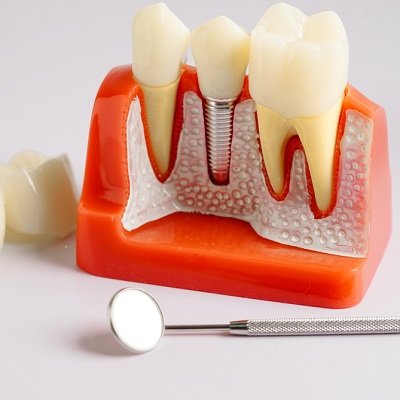
Root canal treatment in Islamabad is a dental procedure designed to save and preserve a tooth that has become infected or severely damaged. While the primary goal of a root canal is to remove the infected pulp and alleviate pain, it raises the question of whether a dental crown is necessary after the procedure. This topic can be a point of concern for many dental patients.
In this blog post, we will explore the significance of dental crowns after root canal treatment, discussing the reasons, benefits, and alternatives to help you make an informed decision.
Overview – Root Canal Treatment:
Before delving into the necessity of dental crowns, it’s essential to understand what a root canal treatment involves. The procedure becomes necessary when the pulp, the innermost part of the tooth, gets infected or inflamed for various reasons, such as deep decay, repeated dental procedures, or trauma. The pulp contains nerves and blood vessels, which can cause severe pain and discomfort when infected.
After the root canal procedure, a dental crown is often recommended to protect and strengthen the treated tooth. But why is this necessary, and what benefits does it offer?
The Necessity of Dental Crowns after Root Canal Treatment:
Protection and Reinforcement:
One of the primary reasons for placing a dental crown after a root canal is to protect and reinforce the treated tooth. A tooth that has undergone a root canal is structurally weaker due to the removal of the pulp and the drilling necessary for the procedure.
Placing a crown on the tooth helps prevent it from fracturing, a common concern after a root canal. Crowns provide additional strength and support, making the tooth less likely to suffer damage from normal chewing and biting forces.
Sealing Out Bacteria:
A well-fitted dental crown creates a tight seal around the tooth, preventing bacteria and debris from entering and causing reinfection. Since a root canal removes the infected pulp, any future contamination can be prevented with a crown, enhancing the long-term success of the procedure.
Aesthetic Restoration:
In addition to protecting the tooth, dental crowns also offer aesthetic benefits. They can restore the natural appearance of the tooth, matching its colour and shape to the adjacent teeth. Teeth must be visible when you smile, ensuring a harmonious and attractive appearance.
Improved Functionality:
Crowns not only protect the tooth but also improve its functionality. After a root canal, a tooth may become more brittle and susceptible to damage. A crown helps maintain the tooth’s ability to bite and chew effectively, thereby contributing to better oral health.
Longevity and Durability:
Dental crowns are known for their longevity and durability. When properly cared for, they can last for many years, providing a long-term solution for restoring and preserving a treated tooth.
Alternatives to Dental Crowns:
While dental crowns are the most common choice after a root canal, there are some alternatives that your dentist might discuss with you based on the specific condition of your tooth and your preferences:
- Filling: A simple filling can close the access opening instead of a crown, especially when the tooth isn’t significantly compromised. It is more common with molars that don’t bear as much biting force as front teeth.
- Onlays and Inlays: Onlays are more conservative options than full crowns. They are used when the tooth structure is still relatively sound but requires some reinforcement. Onlays and inlays are customized restorations that fit precisely over the treated tooth.
- Porcelain Veneers: Porcelain veneers can be an alternative to full crowns for prominent front teeth. Veneers are thin shells covering the tooth’s front surface, providing an aesthetically pleasing appearance.
The choice of restoration after a root canal depends on various factors, including the tooth’s location, damage extent, oral hygiene habits, and budget. Your dentist will guide you in making the best decision for your situation.
The Bottom Line!
In summary, dental crowns are often necessary after root canal treatment to protect, reinforce, and enhance the longevity of the treated tooth. While they provide structural support and prevent bacterial reinfection, alternatives such as fillings, onlays, and inlays can be considered based on the individual case. The decision ultimately depends on the tooth’s condition, its location in the mouth, and your aesthetic and functional preferences.
It is essential to consult with your dentist at SKN Cosmetic Clinic Islamabad, who will evaluate your specific situation and provide guidance on the most appropriate restoration option. In any case, the primary goal of root canal treatment is to save and preserve your natural teeth, and choosing a dental crown is a significant step in achieving this objective.







Book your Appointment